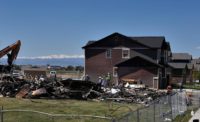There is a long list of issues associated with formal requests for information (RFI), but leveraging technology to shorten that list has proved to be difficult. In early August, a diverse group of contractors, owners, designers, technology providers, virtual construction specialists and other stakeholders met in Denver to tackle what they have dubbed the “RFI dilemma.”
Billed as “one of the first-ever open-integration summits” by leaders of the nonprofit Construction Progress Coalition (CPC), the Aug. 2 meeting in Denver sought consensus for identifying standards and collaborative solutions to RFI issues.
“The history of RFIs has been more of a ‘gotcha’ scenario, rather than a productive tool,” explains CPC President Nathan C. Wood, the founder of technology consultant SpectrumAEC. “We want to understand how complex the [RFI] process is and how to create a road map for the technological folks to follow. But that means we also need to align the contract and data standards [so we can] articulate those to the tech world.”
The quest begins by identifying the types of questions that should generate an RFI, then dividing those that can be handled informally from those that require formal, written communications. The goal is to reduce the number of RFIs and decrease the response time to the requests. Wood says attaining that requires more open-source collaboration on the technical side to produce genuine interoperability. “The idea is not to have one winner here but to create a framework to build upon,” he says. Approaching the question with a multidisciplinary team is one way to get there, the CPC group believes.
“The level of designs issued has gotten worse,” observes Jason Barber, operations manager for electrical contractor Dynalectric Colorado. “And it takes longer to get information to the right people, so we really need to get this done.”
The CPC plans to produce a report from the meeting in early September, with recommendations on how the industry should proceed.






Post a comment to this article
Report Abusive Comment